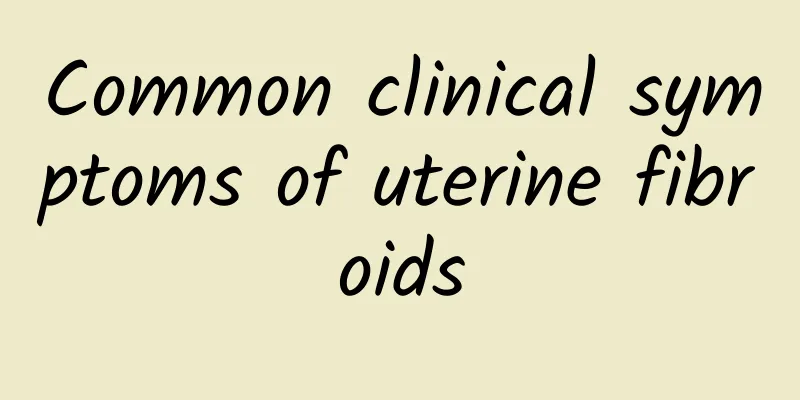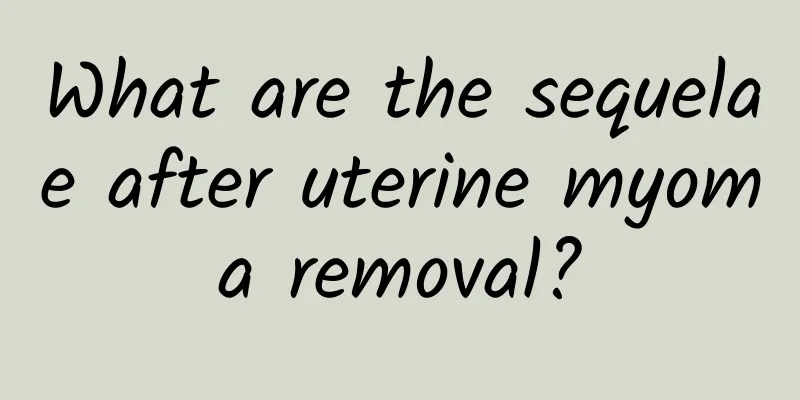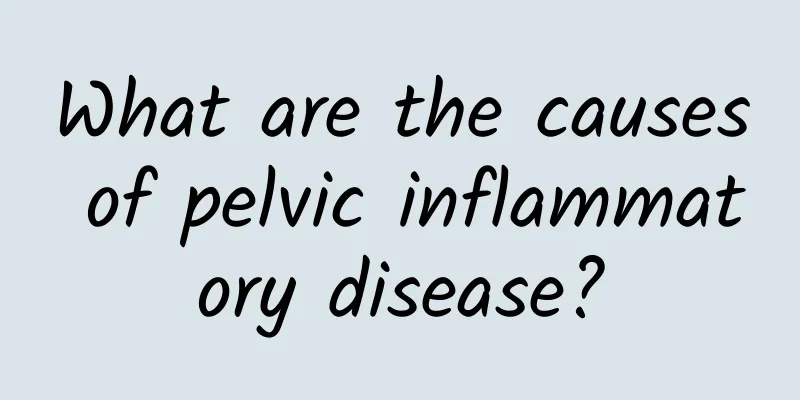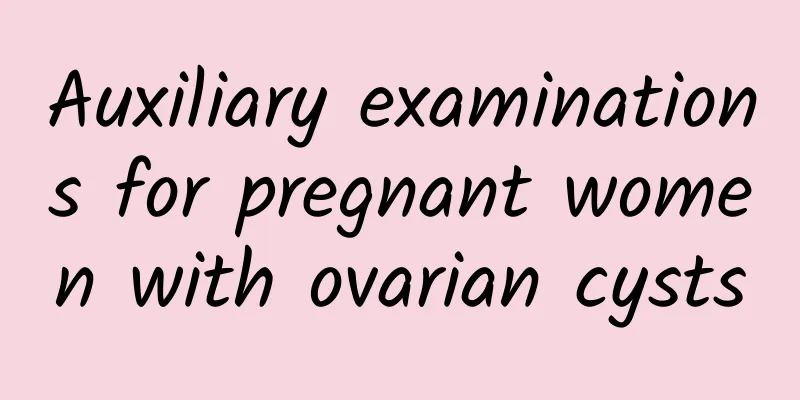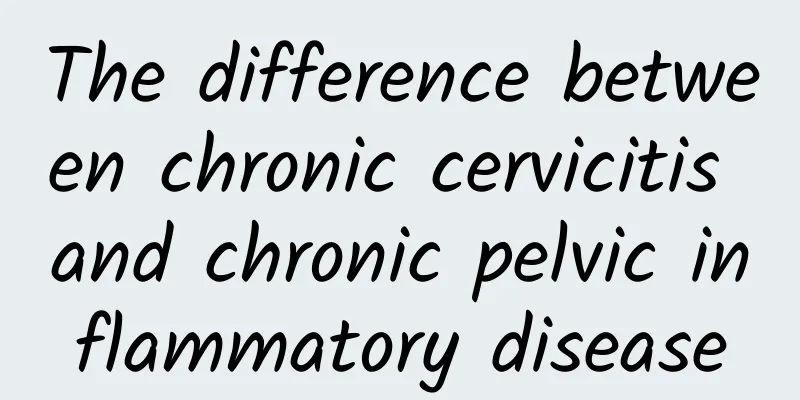What medicine should I take for uterine fibroids and adnexal cysts? How to treat uterine fibroids and adnexal cysts?
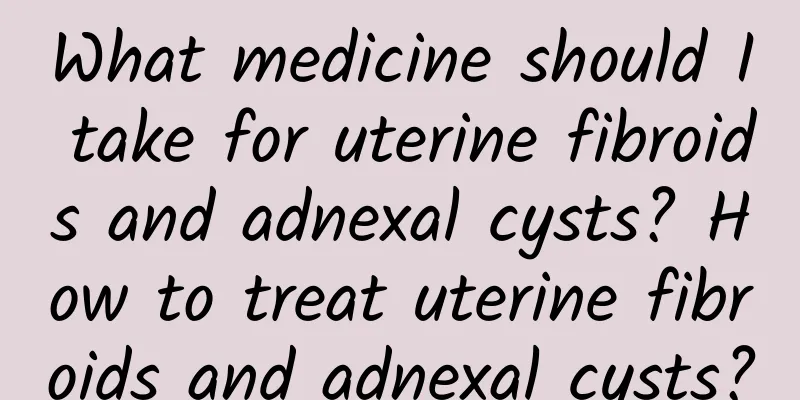
|
Uterine fibroids and adnexal cysts are two common gynecological diseases that have a certain impact on women's health. So, how should these two diseases be treated? Is there any targeted drug treatment? First, let's take a look at the meaning and symptoms of uterine fibroids and adnexal cysts. Uterine fibroids are a common gynecological tumor that is formed by the proliferation of smooth muscles in the uterine wall. The main symptoms include prolonged menstruation, increased menstrual flow, abdominal pain, and pressure during urination. Adnexal cysts refer to cystic objects next to the ovaries, fallopian tubes, or uterus. They usually do not cause symptoms, but in some cases, abdominal pain, abnormal bleeding, and difficulty urinating may occur. The treatment of uterine fibroids is generally divided into conservative treatment and surgical treatment. Conservative treatment is suitable for patients whose symptoms are not obvious or who are not planning to get pregnant. Commonly used drug treatments include oral contraceptives and oral progesterone drugs. Oral contraceptives can effectively control the growth of the endometrium, reduce menstrual volume and the size of uterine fibroids. Oral progesterone drugs inhibit the secretion of progesterone, reduce the growth and thickness of the endometrium, and thus alleviate related symptoms. However, these drugs cannot completely cure uterine fibroids, but can only temporarily relieve symptoms. If conservative treatment is ineffective or the condition seriously affects the quality of life, surgical treatment is a necessary option. Common surgical methods include myomectomy and hysterectomy. Myomectomy is suitable for patients who retain their uterus and is treated by removing the fibroid tissue. Hysterectomy is suitable for patients who have completed childbearing or no longer plan to have children and is treated by removing the uterus. There are relatively few targeted drug treatments for adnexal cysts. Generally speaking, small cysts without obvious symptoms can be observed for changes through regular follow-up. For larger or symptomatic cysts, surgical treatment is required. The surgical method can be selected according to the location and size of the cyst. Common surgical methods include laparoscopic cyst dissection, cyst puncture and extraction, etc. Finally, we want to emphasize that for the treatment of uterine fibroids and adnexal cysts, drug therapy can only temporarily relieve symptoms or reduce the size of the tumor, but cannot completely cure it. Therefore, while receiving treatment, patients should also pay attention to adjusting their lifestyle habits and maintain a good diet and work and rest schedule. In addition, regular check-ups are also very important to detect changes in the condition in a timely manner. If the condition worsens further or other abnormal conditions occur, you should consult a professional doctor in a timely manner. Only scientific and reasonable treatment can better protect women's health. In short, uterine fibroids and adnexal cysts are common gynecological diseases, and the treatment methods include drug therapy and surgical treatment. Drug therapy can relieve symptoms, and surgical treatment can remove tumors. However, drug therapy can only temporarily relieve symptoms and cannot completely cure. Therefore, patients should consult a doctor in time and take appropriate treatment methods to protect their health. |
Recommend
Symptoms of uterine fibroids What are the causes of uterine fibroids
Uterine fibroids are common genital tumors in wom...
When should women have an abortion?
Every year, many women go to the hospital for abo...
What are the symptoms of early ectopic pregnancy?
What are the symptoms of early ectopic pregnancy?...
How much does it cost to do B-ultrasound for irregular menstruation
How much does it cost for women to treat menstrua...
Can cervical precancerous lesions cause miscarriage?
For women to conceive, the egg and sperm must coe...
Different medications are used for candidal vaginitis at different stages
Generally speaking, the medication methods for ca...
Causes of vaginitis
Causes of vaginitis: Vaginitis is a common gyneco...
Some precautions for treating cervical hypertrophy
Do you have a certain understanding of the precau...
Can cervical warts be cured?
Can cervical warts be cured? Experts say yes. Rec...
What are the preventive measures for irregular menstruation?
What are the preventive measures for irregular me...
Take probiotics before and after a big meal to reduce fat absorption and prevent bloating? Pharmacist debunks 7 probiotic myths
"Eat? Or not eat?" I'm afraid of ge...
How to effectively treat irregular menstruation?
How to effectively treat irregular menstruation? ...
Is fungal and trichomonal vaginitis serious?
Is fungal and Trichomonas vaginitis serious? Gene...
8 abortions caused the uterus to "die"
She had had eight abortions, and now the doctor t...
Overview of threatened miscarriage
Threatened abortion has a great impact on pregnan...
